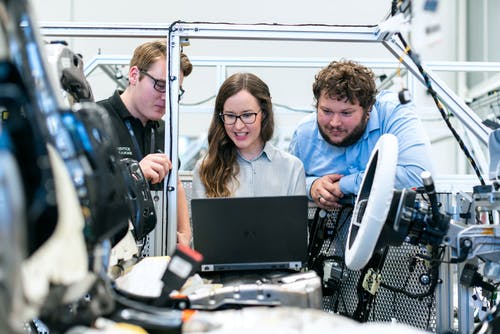HIS Markit, a data firm, reported that the global auto industry is a victim of “ongoing chip shortage” worsened by a recent fire incident “at a Japanese semiconductor factory” besides the “severe weather” seen in part of the U.S. As a result, IHS predicts that as much as “1.3 million global light vehicles” production could suffer due to the same whereby taking the figure up from an earlier prediction of “1 million in the first quarter”.
Renesas Electronics Corp owns a chip manufacturing factory, which provides thirty percent of the “global market for microcontroller units used in cars”, whereby the same came under a fire incident earlier in the month. According to the company, it needs minimum hundred days before production can be restored to normalcy.
HIS Markit further stated that “vehicle output would be affected by unseasonably cold weather that gripped the southwestern parts of the United States last month” as “deadly snowstorms” swept across Texas which hurt retail sales as well as factory production. According to a HIS report:
“These latest impacts to global semiconductor supply lead us to think that Q2 could be as exposed as Q1, while stabilization of supply may not emerge until Q4”.
The shortfall of chips had been affecting the auto industry from the end of last year itself followed by the lockdown imposed due to COVID-19 pandemic as well as “bulk-buying by U.S. sanctions-hit Chinese tech giant Huawei Technologies”. As per Reuters report:
“Global automotive production figures in the first quarter are expected to expand 12% compared to 2020, according to a forecast by IHS.
“Automakers and suppliers are also fretting about the availability of auto parts after a giant container ship blocked Egypt’s Suez Canal for six days last week, causing a significant backlog of ships”.
References:
reuters.com
Renesas Electronics Corp owns a chip manufacturing factory, which provides thirty percent of the “global market for microcontroller units used in cars”, whereby the same came under a fire incident earlier in the month. According to the company, it needs minimum hundred days before production can be restored to normalcy.
HIS Markit further stated that “vehicle output would be affected by unseasonably cold weather that gripped the southwestern parts of the United States last month” as “deadly snowstorms” swept across Texas which hurt retail sales as well as factory production. According to a HIS report:
“These latest impacts to global semiconductor supply lead us to think that Q2 could be as exposed as Q1, while stabilization of supply may not emerge until Q4”.
The shortfall of chips had been affecting the auto industry from the end of last year itself followed by the lockdown imposed due to COVID-19 pandemic as well as “bulk-buying by U.S. sanctions-hit Chinese tech giant Huawei Technologies”. As per Reuters report:
“Global automotive production figures in the first quarter are expected to expand 12% compared to 2020, according to a forecast by IHS.
“Automakers and suppliers are also fretting about the availability of auto parts after a giant container ship blocked Egypt’s Suez Canal for six days last week, causing a significant backlog of ships”.
References:
reuters.com






